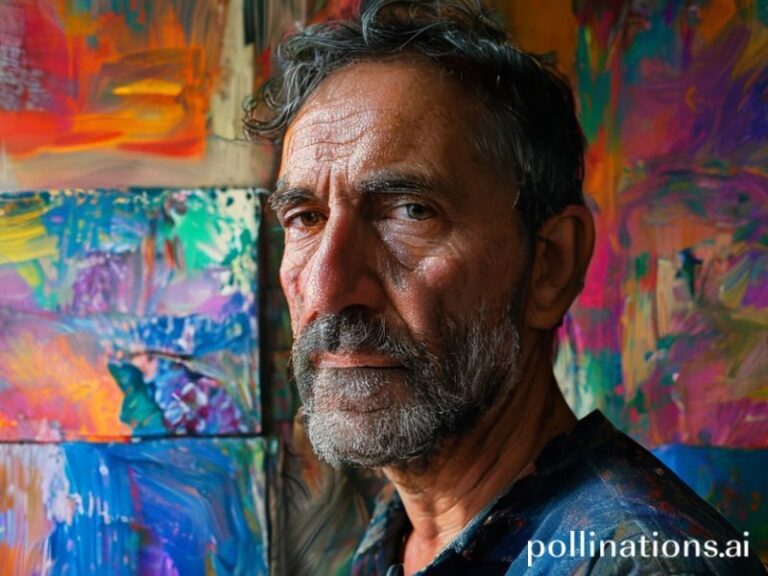Ron Howard: The World’s Most Successful Purveyor of Cinematic Comfort Food
**Opie Goes Global: How Ron Howard Became the Accidental Ambassador of American Mediocrity**
The international community has long grappled with America’s most insidious cultural exports: fast food, reality television, and the persistent belief that louder equals better. Yet perhaps no American has done more to propagate the gospel of competent, utterly unremarkable filmmaking across global borders than Ronald William Howard—a man whose career trajectory from child star to Oscar-winning director represents either the triumph of middle-of-the-road persistence or the most successful gaslighting operation in cinematic history, depending on your caffeine levels.
From the cobblestone streets of European art houses to the gleaming multiplexes of Asia, Howard’s filmography has become a sort of cultural Rorschach test. The French, in their infinite capacity for finding depth in the shallow end of the pool, have embraced his work as “cinéma de l’anxiété bourgeoise”—apparently mistaking his trademark earnestness for subtle critique of American exceptionalism. Meanwhile, in countries where political instability makes escapism a survival mechanism rather than a weekend option, his films are celebrated for their reliable predictability. Nothing says “temporary respite from existential dread” quite like knowing exactly when the inspirational montage will hit.
The global box office returns tell a story that would make any IMF economist weep with recognition: Howard’s films have grossed over $4.5 billion worldwide, proving that the international appetite for competently crafted, emotionally manipulative entertainment knows no borders. It’s a figure that roughly equals the GDP of Fiji, though Fiji at least has the decency to be interesting. This commercial success has transformed Howard into an unlikely cultural diplomat, his films serving as the cinematic equivalent of comfort food in nations where actual comfort is in short supply.
The implications ripple outward like a stone dropped in a pond of cultural homogenization. Film schools from Mumbai to Munich teach his “invisible style” as the gold standard of commercial filmmaking—a technique so seamlessly bland that viewers don’t even realize they’re being processed through an emotional assembly line. It’s filmmaking as international airport: efficient, familiar, and utterly forgettable, ensuring that whether you’re in Jakarta or Johannesburg, you’ll experience the exact same carefully calibrated catharsis.
Perhaps most darkly amusing is how Howard’s ascent mirrors America’s own global position: technically proficient, occasionally inspiring, but fundamentally terrified of anything resembling genuine risk. His 2020 Netflix adaptation of “Hillbilly Elegy” was savaged by American critics but found an appreciative international audience that viewed Appalachian poverty as another exotic American dysfunction, like mass shootings or healthcare bankruptcy. One Brazilian critic called it “a fascinating anthropological study,” which is what people say when they can’t decide if something is art or a cry for help.
The broader significance becomes clear when you consider how Howard’s brand of palatable competence has influenced global cinema. Chinese filmmakers study his crowd-pleasing techniques for their domestic blockbusters. Bollywood producers hire his former assistants to add that special something—that ineffable quality that makes international audiences feel like they’ve had an emotional experience without actually challenging any assumptions. It’s cinematic colonialism wearing a friendly face.
As the world grapples with actual problems—climate change, rising authoritarianism, the slow-motion collapse of the post-war order—Ron Howard continues crafting his reliable odes to human resilience. His films remind us that no matter how dire things get, there’s always a market for stories where everything works out in the end, the right people learn the right lessons, and the credits roll before anyone has to deal with the messy aftermath.
In that sense, perhaps Ron Howard isn’t just a filmmaker but a prophet of our age: a true believer in the power of neat resolutions in a world that increasingly resembles a plot without a third act. The international community, in its infinite wisdom and desperation, has chosen to embrace him—not as an artist, but as the harbinger of a future where all conflicts are resolved in 120 minutes or less, preferably with an uplifting score.







